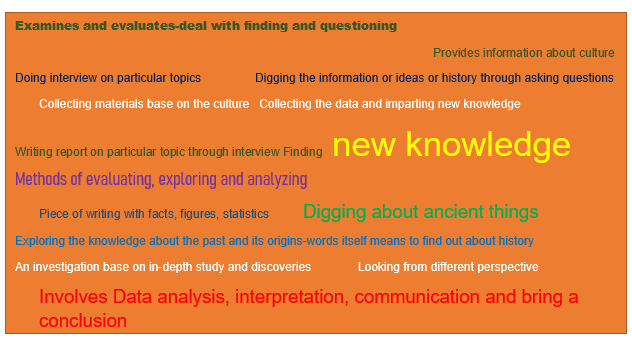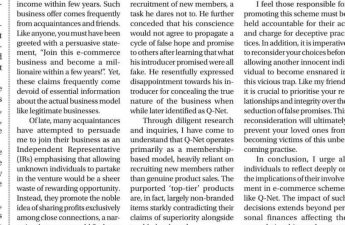This fall semester 2021, I am assigned to teach RES101 Basic Research Methods to BA in Language and literature programme, one of the final year sections. It was during my first day of the session while introducing the semester plan, and after that, I ask students to answer two questions in a piece of paper, “What is your understanding of term research?’ and ‘their expectation from this modules RES101?’ I invested more than 2 hours reading and jotting down what they wrote and understand about research. As I went through their piece of the answer, found out that generally, almost all the students had heard the term research and they can grasp the general meaning of ‘what is research?’ But some of the students have mixed the meaning and objective of the research. Here are some definitions of the research and their understanding of research, represented in the figure below.

As you can see from the figure, there are various definitions of the term research, and it is fair to say that there is no way to describe and say this is wrong and right, every point they wrote is somehow related. Now, let us define what research means according to Kothari, C. (2004. P. 1-2); Research means a search for knowledge. It is a scientific and systematic search for pertinent information on a specific topic. It is an art of scientific investigation.
The Advanced Learner’s Dictionary of Current English lays down the meaning of research as “a careful investigation or inquiry specially through search for new facts in any branch of knowledge.”
Redman and Morey define research as a “systematized effort to gain new knowledge.”
According to Clifford Woody research comprises defining and redefining problems, formulating hypothesis or suggested solutions; collecting, organizing, and evaluating data; making deductions and reaching conclusions; and at last, carefully testing the conclusions to determine whether they fit the formulating hypothesis.
D. Shlesinger and M. Stephenson in the Encyclopedia of Social Sciences define research as “the manipulation of things, concepts or symbols to generalize to extend, correct or verify knowledge, whether that knowledge aids in the construction of theory or the practice of an art.”
Some of the important traits of research include; objectives of the research, types of research, research approaches, the significance of the research, research process, criteria of good research, the problem encountered by researchers, defining the research problem? Research design, Sampling design, methods of data collection, processing and analysis of data, sampling fundamentals, Testing of hypothesis, analysis techniques, and interpretation and report writing.
After exploring some of the key traits of research, we need to know what role research can play not only the helping an individual develop and grow but also to contribute to building a nation in the long run. That’s is why research knowledge is most important and indispensable to everyone.
Most of the students’ expectation from this module are; their expectation is not only base on the subject but also highlighted personal traits that tutor need to take care while delivering the lecture and assigning them the task. Among the 33 students, the majority of them wish fruitful sessions with an open environment of learning where they can express their feedback, suggest, correct mistakes, and a complete lessons on scheduled time. Some of the students are aspiring to learn new knowledge, particularly get aware of basic methods of research.
I am hopeful that this semester would be fruitful and productive not only for the students but also for me in developing and nurturing a new understanding of the research’s types and methods. To me, learning never ends with restricting to the skill-set that I know but constantly strive to be a better version through learning. I do not believe in reaching a certain stage of fulfillment and remaining there. I always like to accumulate knowledge and quest to learn more.
 1964
1964
